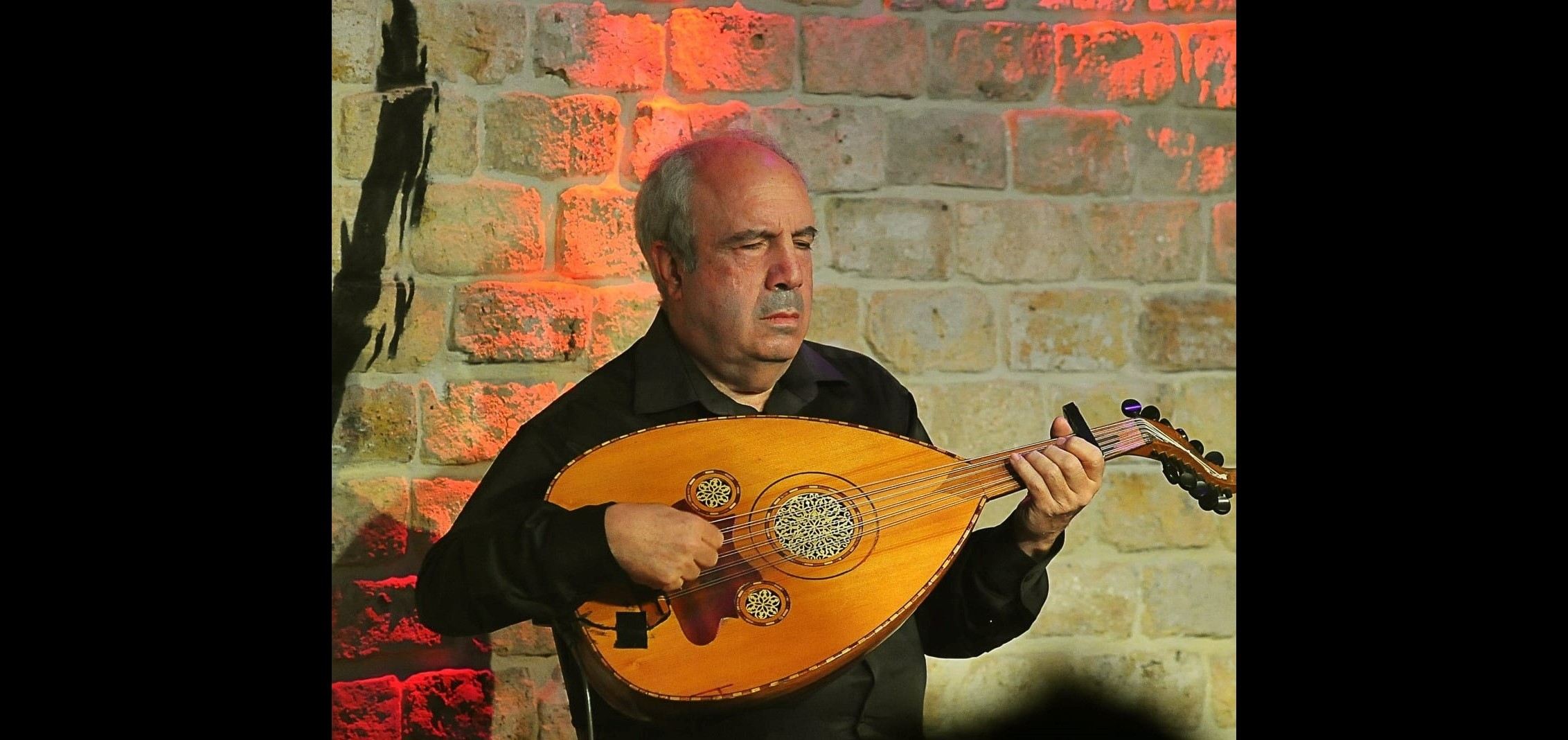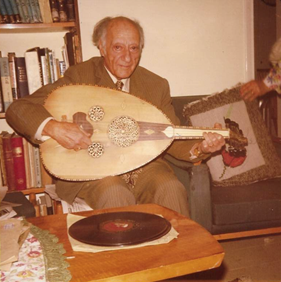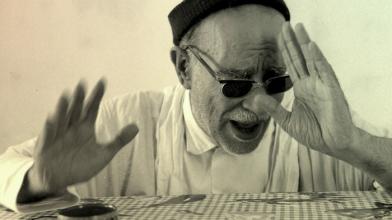Armand Sabah was born in 1952 in Marrakesh, Morocco, and immigrated to Israel with his family at age ten. His father came from a musical family related to the renowned Moroccan singer and composer Sami Elmagribi. The love of music in his household was evident through the constant presence of music and the extensive collection of records his father acquired. From a young age, Sabah was exposed to various genres of Moroccan music. At age six, after persistent requests, his father gifted him a Gimbri. Sabah's musical talent became evident as he learned to master and tune the instrument independently. Subsequently, his father purchased an accordion for him, and Sabah quickly became proficient as a self-taught musician.
Upon arriving in Israel at age ten, Sabah began to integrate into Israeli culture, gradually shifting his musical focus towards Israeli singers and Hebrew songs, temporarily setting aside the Moroccan music of his childhood. He pursued formal music education in Israel, studying accordion, classical guitar, piano, and violin with private instructors, focusing primarily on Western classical music. After completing his studies at Himmelfarb High School in Jerusalem, Sabah enrolled at the Hebrew University of Jerusalem, pursuing a B.A. in sociology and Islamic and Middle Eastern studies. During this period, he played electric guitar in the university's student orchestra, performing mainly pop music, including songs by the Beatles.
While still a student, his father surprised him with an oud, which Sabah initially rejected, considering Moroccan music primitive compared to the electric guitar. However, after some persuasion, he agreed to play the oud privately. His father introduced him to an Iraqi oud player from Avraham Salman's ensemble in the Kol Yisrael Orchestra. Upon hearing Sabah play, the musician recognized Sabah's musical talents and encouraged him in his playing. Post-graduation, Sabah sought to enhance his guitar skills and enrolled in the Jerusalem Academy of Music in 1978. He studied classical guitar in the performance department and earned a B.A., focusing extensively on flamenco music.
In the early 1980s, Sabah performed as a violinist with the payytan R. Haim Louk at Jerusalem's Bustan Sfaradi Hall. Although his violin experience was predominantly in classical music, his background in Moroccan music enabled him to accompany Louk in a manner that garnered significant enthusiasm. This experience encouraged Sabah to delve deeper into Moroccan music. Consequently, in 1982, he established a musical ensemble comprising prominent payytanim, including Shlomo Amzaleg, R. Yosef Bin-Nun, David Shitrit, Yitzhak Illuz, Yehuda and Haim Aboutboul. Leading the ensemble, Sabah aimed to promote Moroccan music across diverse audiences in Israel, performing extensively at various venues, including IDF bases, community events, schools, and more, often without charge. After the ensemble disbanded, Sabah focused on teaching music, offering instruction in classical guitar, flamenco, classical and oriental piano, oud, and Kamanga violin. He also worked with the Jerusalem Municipality, teaching music to adults.
Throughout his career, Sabah has been a performer, composer, and musical director of the ensembles of additional singers, including R. Haim Louk, Emil Zrihan, Lior Elmaleah, Ruth Yaakov, R. Maymon Cohen, Gila Bashari, Kochava Levy, Orit Atar, and Amir Benayoun. From 1995 to 2015, Sabah directed the ensemble of singer Ilana Eliya, specializing in Kurdish music, and performed globally with the group. Sabah played the oud, Turkish saz, jumbush, and frame drum. Since 2000, Sabah has been a member of the Kol Oud Tof Trio, led by Ladino singer Esti Keinan-Ofri. His involvement led to the inclusion of 'Haketia' (Spanish Moroccan language) songs in their repertoire, and they recorded two albums, Tzviya and Twenty-Five Golden Steps, performing internationally, including in Taiwan and at UCLA. From 2010 to 2020, Sabah was the soloist of the Andalusian Orchestra and also performed with the New Jerusalem Orchestra and the Israel Symphony Orchestra in Rishon Leziyon. In 2017, he founded and conducted the Andalusian Orchestra of Ma'ale Adumim.
Sabah has implemented numerous educational programs across Israeli schools and kindergartens. He actively participates in the piyyut project Kehilot Sharot and has been part of its accompanying ensemble since 2002. Additionally, he appeared in the film Bab El Ward (The Flowers Gate), directed by Haim Bouzaglo. Today, Sabah is predominantly recognized as an oud player, specializing in the musical traditions of Morocco and Algeria. He continues to teach these traditions in various settings, including the 'Oru' authentic music center in Jaffa. Alongside his musical pursuits, Sabah has been a sought-after piano tuner.
(This biography is based on an interview conducted by Rahel Ben Haim with Armand Sabah in March 2022.)
Additional resources
Selected commercial and ethnographic recordings of Sabah's performances, in the National Library website.
Selected excerpts from Sabah's playing in ensembles, see in YouTube.






